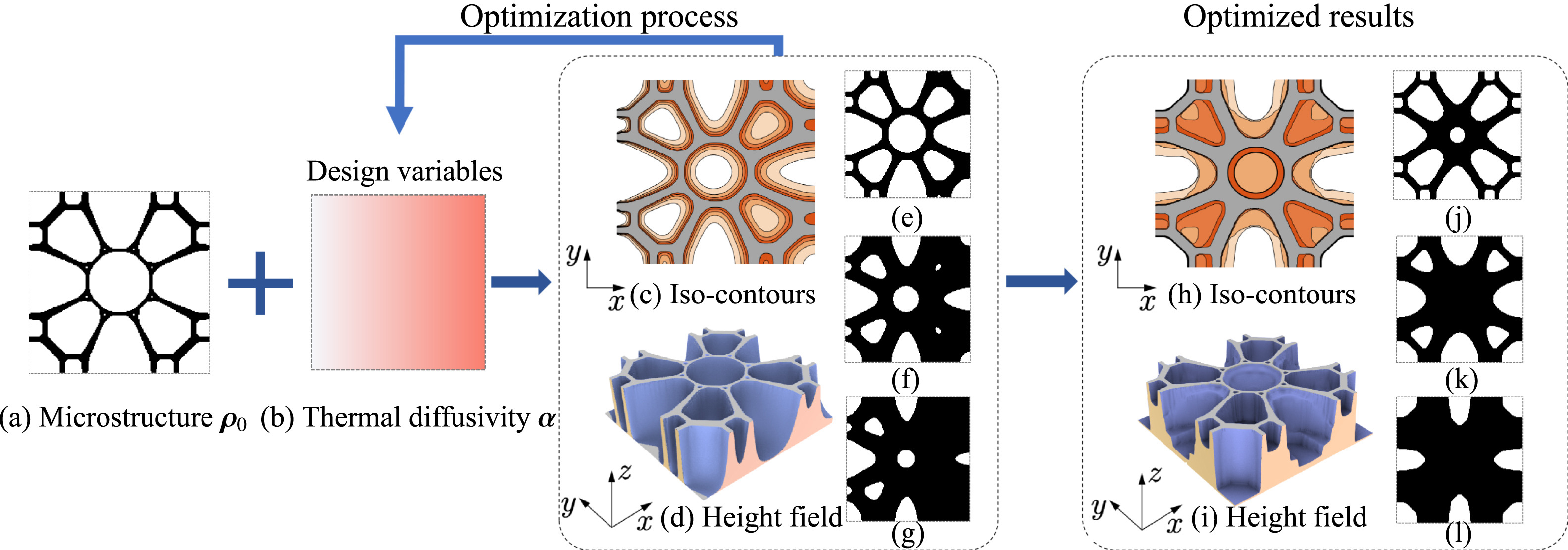Topology optimization of differentiable microstructures
Computer Methods in Applied Mechanics and Engineering, 2024
| Xiaoya Zhai |
Weiming Wang |
Falai Chen |
Jun Wu |
| University of Science and Technology of China |
The University of Manchester |
University of Science and Technology of China |
TU Delft |

Abstract
Recent years have seen a growing interest in topology optimization of functionally graded microstructures, characterized by an array of microstructures with varying volume fractions. However, microstructures optimized at slightly different volume fractions do not necessarily connect well when placed adjacently. Furthermore, optimization is commonly performed on a finite set of volume fractions, limiting the number of microstructure configurations.
In this paper, we introduce the concept of differentiable microstructures, which are parameterized microstructures that exhibit continuous variations in both geometry and mechanical properties. To construct such microstructures, we propose a novel formulation for topology optimization. In this approach, a series of 2-dimensional microstructures is represented using a height field, and the objective is to maximize the bulk modulus of the entire series. Through this optimization process, an initial microstructure with a small volume fraction undergoes non-uniform transformations, generating a series of microstructures with progressively increasing volume fractions. Notably, when compared to traditional uniform morphing methods, our proposed optimization approach yields a series of microstructures with bulk moduli that closely approach the theoretical limit.
Keywords
Topology optimization; Functionally graded microstructures; Inverse homogenization
Download
Bibtex
@article{Zhai2024CMAME,
title={Topology optimization of differentiable microstructures},
author={Xiaoya Zhai and Weiming Wang and Falai Chen and Jun Wu},
journal={Computer Methods in Applied Mechanics and Engineering},
volume={418},
pages={116530},
year={2024},
doi={https://doi.org/10.1016/j.cma.2023.116530},
publisher={Elsevier}
}

